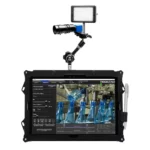Benefits of Using Transcription in Academic Research
In the realm of academic research, the meticulous collection and analysis of data are paramount. As scholars endeavor to contribute new knowledge to their fields, the integrity and reliability of their findings hinge on the accuracy of the information gathered. Transcription, the process of converting audio and video content into written text, emerges as an indispensable tool in this effort. It offers a tangible, analyzable format that can significantly enhance the quality and efficiency of research. By leveraging professional transcription services, researchers can ensure that every nuance of their data is captured accurately, thereby bolstering the credibility of their work. This article delves into the benefits of utilizing transcription in academic research, underscoring its role in streamlining data analysis, enhancing collaboration, and ensuring the fidelity of research outcomes.
Enhanced Accuracy
The cornerstone of robust academic research is the precision of its data. Transcription plays a critical role in preserving the fidelity of recorded interviews, focus groups, and observations. Professional transcriptionists, with their trained ears and expertise in linguistic nuances, ensure that every word is captured verbatim, minimizing the risk of misinterpretation or loss of crucial details. This level of accuracy is vital in maintaining the integrity of the research, as even minor discrepancies can lead to significant misrepresentations in findings. The meticulous transcription of data sets a solid foundation for credible and reliable research outcomes.
Time and Resource Efficiency
One of the most compelling advantages of using transcription services is the considerable savings in time and resources it offers researchers. The task of transcribing audio and video recordings is time-consuming and requires a high level of concentration and linguistic skill. By outsourcing this task to professional services like www.taurho-transcribes.co.uk, researchers can reallocate their time and efforts toward data analysis, theory development, and writing, thereby accelerating the pace of their projects. This efficient allocation of resources is particularly beneficial in academic settings, where time and funding are often limited.
Improved Accessibility
Transcribed data is inherently more accessible than its audio or video counterparts. It allows for easier sharing among research teams, stakeholders, and the academic community at large. This enhanced accessibility not only facilitates collaboration and peer review but also ensures that research findings are inclusive and available to a wider audience, including individuals with hearing impairments. Moreover, transcribed text can be easily archived and retrieved, making it a valuable resource for future research and scholarly inquiry.
Facilitates Data Analysis
For qualitative researchers, transcribed text is a goldmine of information ripe for analysis. The conversion of audio or video data into text simplifies the process of coding and thematic analysis, enabling researchers to sift through material more efficiently and identify patterns, themes, and relationships within the data. This facilitation of data analysis is crucial in distilling meaningful insights from raw data, ensuring that the research findings are grounded in empirical evidence and contribute valuable knowledge to the field.
Supports Multilingual Research
In an increasingly globalized academic landscape, research often encompasses multiple languages, making transcription an invaluable tool in transcending linguistic barriers. Professional transcription services that offer multilingual capabilities can expand the reach of research projects, allowing scholars to include non-English speaking participants and analyze data across different languages. This capability is essential for studies that aim to capture the breadth of human experience and understanding, providing a more inclusive and comprehensive view of the subject matter.
Enhanced Data Organization
Transcription transforms audio and video data into structured text format, which significantly enhances data organization. This text-based format allows researchers to easily categorize, tag, and index their data, facilitating quick retrieval of specific segments for review or analysis. Organized data reduces the time spent searching through hours of recordings, making the research process more efficient and less cumbersome. This level of organization is crucial for handling large datasets common in extensive research studies, where the ability to navigate data efficiently can dramatically impact the project’s timeline and outcomes.
Aids in Publication and Presentation
The rigor of academic publication and presentation demands a high level of precision and authenticity. Transcribed interviews, focus groups, and lectures provide a textual basis that researchers can directly quote in their papers, articles, and presentations. This direct quoting not only lends authenticity and depth to academic work but also ensures accuracy in representing participants’ responses and observations. Moreover, having a written record of research data simplifies the process of compiling and formatting content for publication, ensuring that the final output is both credible and compelling.
Legal and Ethical Compliance
In certain fields of research, particularly those involving human subjects, legal and ethical standards dictate strict adherence to confidentiality and accuracy in data handling. Transcription services that comply with these standards provide an essential layer of security and reliability, ensuring that sensitive data is handled appropriately. Accurate transcription also plays a pivotal role in maintaining the integrity of the research, safeguarding against misrepresentation of participants’ words, which could lead to ethical breaches and legal complications.
Enables Comprehensive Review
Having a transcribed document of audio or video data allows researchers and their teams to conduct a comprehensive review of their material. This thorough examination is pivotal in ensuring that no critical insights or nuances are overlooked. A written record enables multiple reviews, discussions, and analyses, fostering a deeper understanding of the data and promoting collaborative exploration of themes and patterns. This comprehensive review process is integral to developing well-founded conclusions and theories grounded in the empirical evidence.
Supports Long-Term Archiving
Transcription facilitates the long-term archiving of research data, ensuring that it remains accessible for future studies, meta-analyses, or historical reference. Text documents are easier to store, catalog, and retrieve than audio or video files, which may require specific software or hardware to access. Moreover, the digital archiving of transcribed data contributes to the preservation of academic knowledge, allowing future researchers to build upon existing work, explore historical trends, and engage in longitudinal studies.
Conclusion
The use of transcription in academic research offers a spectrum of benefits that extend far beyond the initial convenience of converting audio or video to text. From enhancing data organization and aiding in publication efforts to ensuring legal and ethical compliance, enabling a comprehensive review, and supporting long-term archiving, transcription is an invaluable tool in the academic researcher’s arsenal. As the landscape of academic research continues to evolve, incorporating advanced technologies and methodologies, the role of transcription remains steadfast, providing a bridge between raw data and meaningful insights. For researchers aiming to elevate the impact and efficiency of their work, investing in professional transcription services is not just a practical choice but a strategic imperative.
Cover Image by Pexels
















